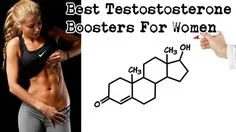What is the relationship between natural bodybuilders and testosterone?
As the representative of human androgens, testosterone plays a vital role in achieving the health goals of men and women and achieving bodybuilding goals.
The secretion of testosterone in men and women is very
different.
90% of men's testosterone comes from testicular stromal cells.
50%
of women are converted from androstenedione in liver, fat, skin and other
tissues.
Also, 25% are from ovarian stromal cells and the portal cells are synthesized with the adrenal cortex reticulum.
Do women also secrete testosterone?
Generally speaking, the level of testosterone in women is
about 1/10 of that of men. But this "1/10" plays a very important
role in women's health and muscle gain.
The testosterone secreted by women's ovaries does not fluctuate significantly with the menstrual cycle.
Testosterone levels in men and women generally peak between the ages of 20 and 30, and then begin to decline.
What is the role of testosterone in the body?
Puberty is a period of rapid increase in the secretion of testosterone in males.
It allows males in adolescence to quickly develop many male characteristics, such as deepened voice and increased muscle mass.
For adult males, it is closely related to sexual desire, strength, confidence, authority and aggressiveness.
1. Testosterone affects many aspects of the male body
Benefits for overall health include but are not limited to:
- Healthy metabolism
- Appropriate fat distribution
- Maintain bone density
- Fertility and libido
- Healthy sperm development
- Regulates mental and physical energy
- Healthy pain response
- Sufficient red blood cell level
- Good sleep patterns
- Hair growth
2. The positive effects of testosterone on women:
- Prevent cardiovascular disease
- Regulate the menstrual cycle
- Increase mood and prevent depression
- Increase energy level
- Improve strength and endurance
- Build strong and dense bone tissue
- Promotes muscle gain
- Improve anxiety and mental function
- Revitalize the skin through collagen synthesis
- Prevent fat gain
- Promotes healthy red blood cell production
- Increase libido and orgasm
- Enhance clitoral sensitivity and arousal
3. When Testosterone is low, the following symptoms may occur:
- Low libido
- Erectile dysfunction
- Depressed mood
- Persistent fatigue
- Weight gain (fat)
- Inattention
- Loss of muscle mass
- Changes in cholesterol levels.
- Reduced hemoglobin
- Osteopenia or osteoporosis
- Body hair reduction
4. Impact of excess testosterone (natural bodybuilders generally do not have this condition)
Although testosterone can help us achieve our health and fitness goals, just like other things in life, "balance" is the core.
Excessive testosterone levels in the body will still have an
adverse effect on our health.
The following are the reference symptoms of excessive Testosterone levels:
- Increased aggression (may become a fuse for people who have a tendency to violence)
- Acne (mainly on the back and shoulders)
- Slight testicular shrinkage
- Reduced fertility rate
- Hair loss
- Benign prostatic hyperplasia
- Greed for alcohol
- Smoking
- Participate in risky behaviors (adrenaline pursuits such as sexual promiscuity, jumping or bungee jumping, or even criminal activities)
5. Possible consequences of misuse and misuse of artificial Testosterone:
- Infertility
- Hair hyperplasia
- High cholesterol
- Heart disease
- Sperm reduction
- Increased risk of heart disease
- Water retention
- Sleep apnea
- Prostate cyst growth
- Hypertension
- Gynecomastia
- Violence
- Aggressive
- Acne, acne
The blind use of exogenous hormones may also have a potential negative impact on other hormones in the body.
It is estimated that the body
produces more than 60 different hormones.
The complex interaction of these
hormones in the body makes endocrine research extremely difficult.
The effects of exogenous hormones on the body are often seriously underestimated.
Seven Natural Methods to Increase or Improve Testosterone
1. Basic principles
- Eat more organic food
- Drink plain water or filtered water
- Guarantee high-quality, regular sleep
- Adhere to an active lifestyle
- Ensure mental health
- Keep a happy mood
- Focus on breathing
- Regular strength training (typical bodybuilding training)
- Regulate many pressures in life and study
2. Diet strategy
i. Reduce sugar intake
A high-sugar diet will raise our blood sugar levels. The body will automatically secrete insulin for the reason of keeping blood sugar levels moderate. Excessive insulin will cause testosterone levels to decrease.
ii. Increase Vitamin D
Vitamin D helps increase testosterone levels and maintain
semen quality and quantity.
The easiest way to get the vitamin D you need every
day is to sunbathe for 20 to 30 minutes a day.
The following foods are also rich in vitamin D: tuna, salmon, sardines, milk, cheese, egg yolk, beef liver, kidney beans or vitamin D3 supplements.
iii. Eat healthy fats
Coconut, coconut oil, milk, beef, liver, fish oil, flax seeds, walnuts, avocado, olive oil, almonds, walnuts.
iv. Intermittent fasting
Intermittent fasting is not a diet, but a specific pattern of dieting. More simply, it is a conscious decision to skip certain meals.
By fasting at a specific time and then eating purposefully, intermittent fasting means taking the calories of the day during a specific window of the day and not eating food for the rest of the day.
Intermittent fasting has been supported by many scientific
literature.
Studies have shown that intermittent fasting can lead to increased testosterone levels through complex hormone pathways.
v. Avoid zinc deficiency
Zinc is necessary for the production of testosterone in adolescence and affects the level of androgens in adulthood. It helps regulate the endocrine system.
Foods high in zinc include: red meat, fish and shellfish, milk, oysters, spinach.
Author's Bio
Name: Gwynneth May
Educational Qualification: MBBS, M.D. (Medicine) Gold Medalist
Profession: Doctor
Experience: 16 Years of Work Experience as a Medical Practitioner


Comments
Post a Comment